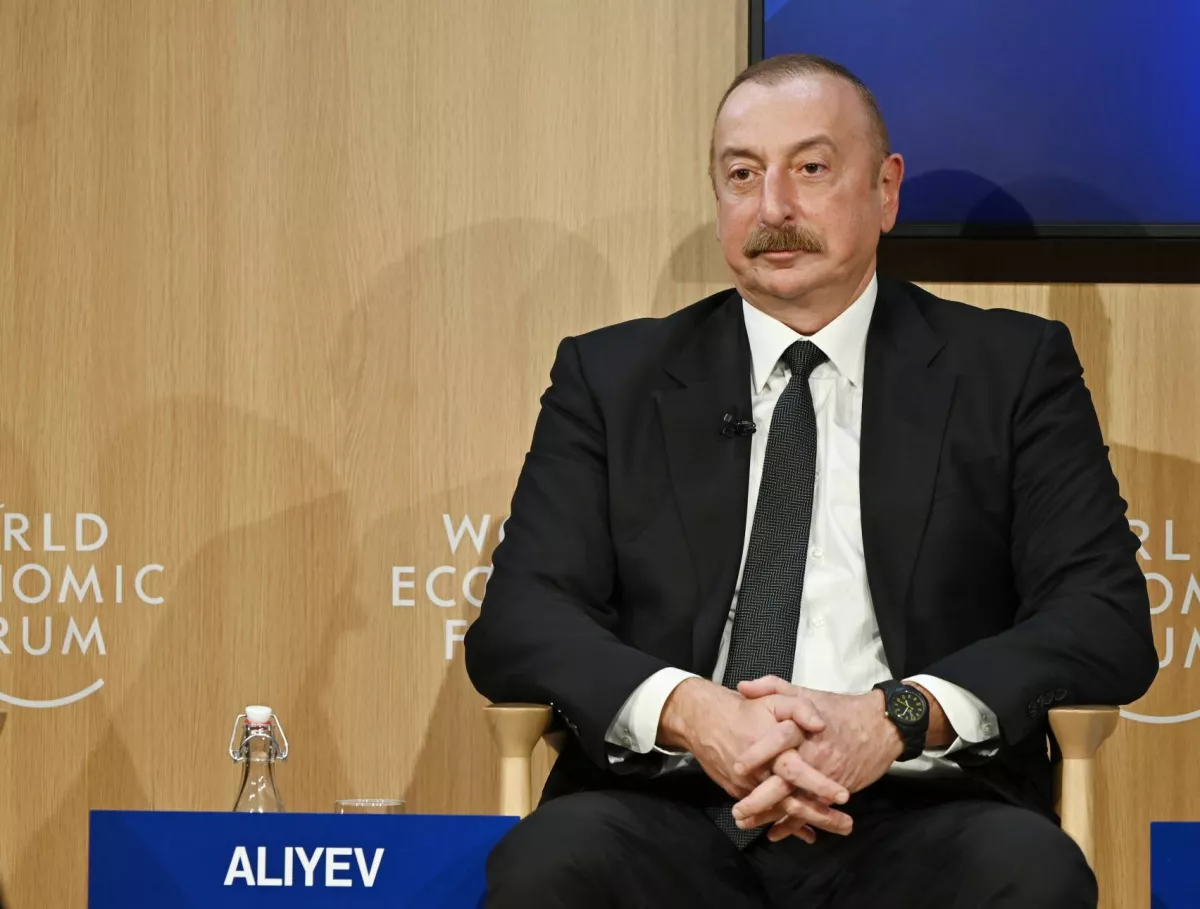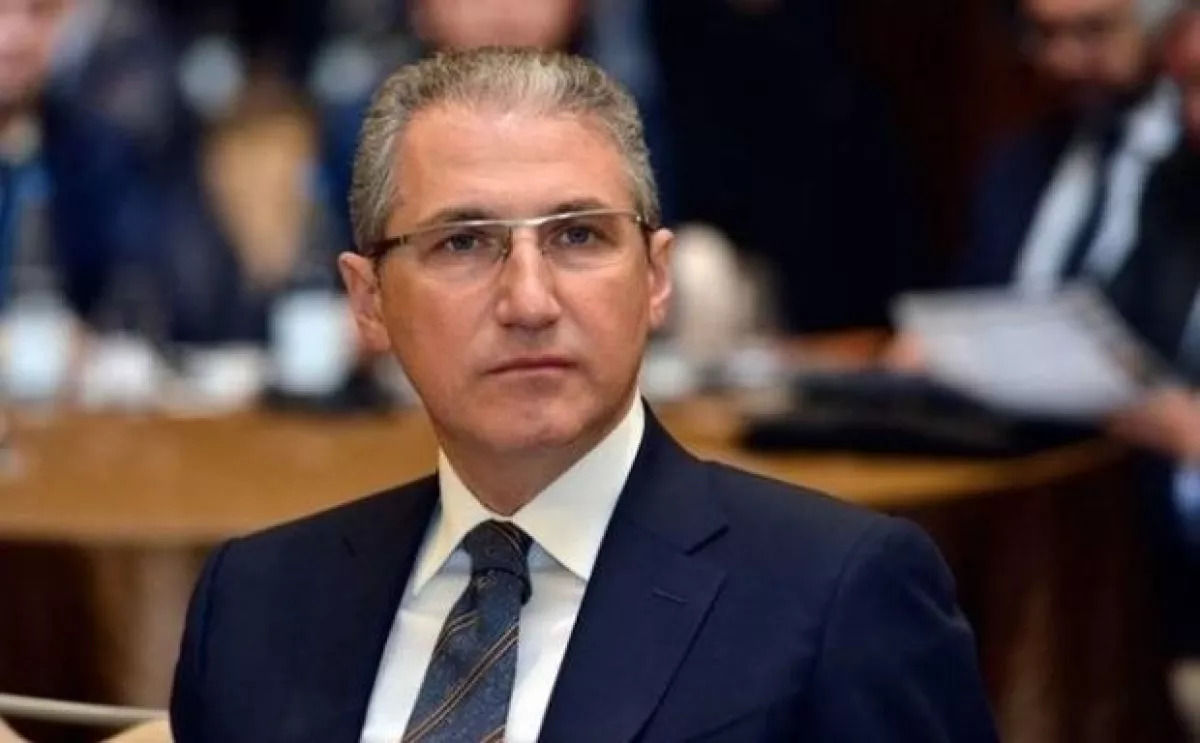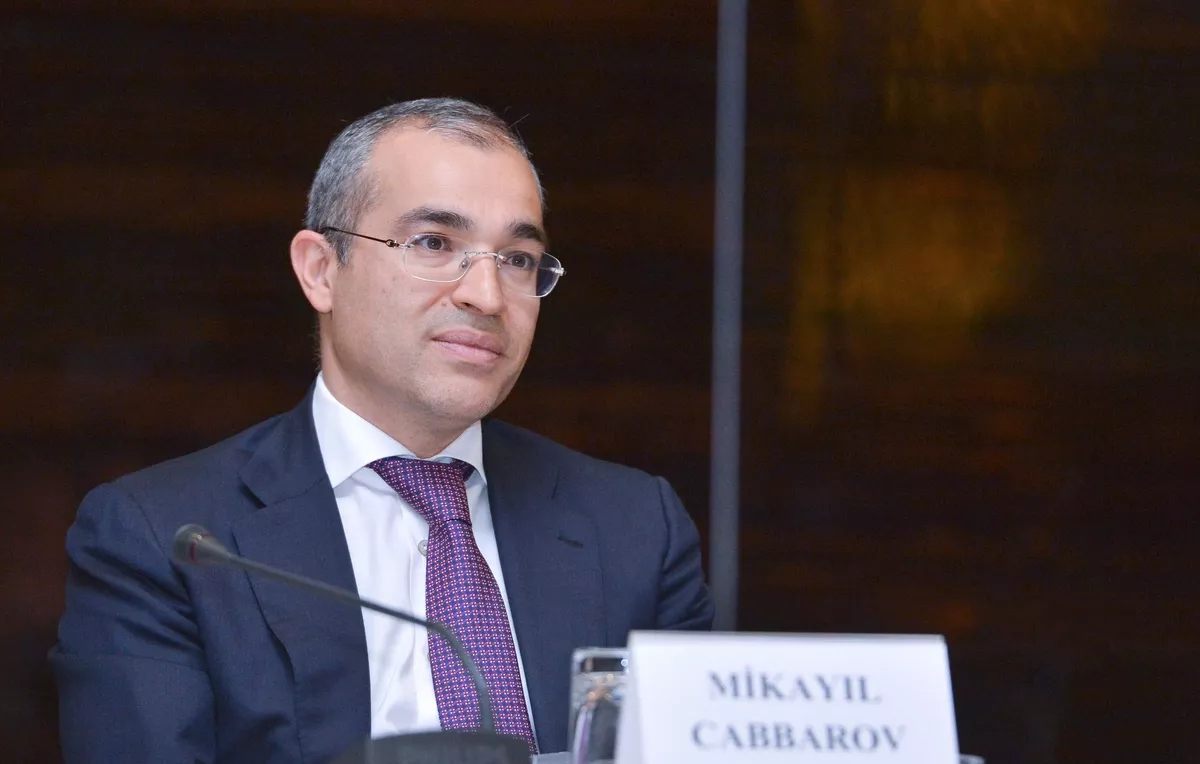Davos 2025 tackles world’s most pressing issues Artificial intelligence, climate, and geopolitics in focus
The annual World Economic Forum (WEF) has officially begun in Davos, Switzerland. This year marks the 55th edition of the event, which runs for five days under the motto "A Call for Collaboration in the Intelligent Age." The forum will address several critical global issues, including the ongoing crises in Ukraine and the Middle East, climate change and the transition to "green" technologies, as well as the advancements in artificial intelligence and quantum computing. A key focus will be the impact of these cutting-edge technologies on the labour market. Azerbaijani President Ilham Aliyev, along with other members of the official Azerbaijani delegation, is set to participate in the discussions.
The World Economic Forum, held from January 20 to 24 in the Swiss resort town of Davos, has gathered a record number of attendees — around 3,000 participants from 130 countries. Approximately 350 government representatives from around the world have arrived in Switzerland for the discussions, including 60 heads of state and government, as well as top executives of major global companies, public figures, and representatives from leading international media outlets. This year, the forum also welcomes an official Azerbaijani delegation. On January 23, President Ilham Aliyev will participate in the panel discussion titled "Caspian Crossroads and Currents."

"[The current forum] is happening against the most complicated geopolitical backdrop in generations," stated WEF President Børge Brende recently. According to the WEF's annual risk report, published on January 15, 2025, armed conflicts between nations are identified as the primary threat for the year. Equally concerning are the growing geo-economic confrontations, intensified deglobalization processes, and trade disputes, which reflect an "increasingly fragmented global landscape."
The "hot" topics to be discussed at this year's forum include shifts in U.S. policy with the return of Donald Trump to the White House, the surge in populist sentiment across Europe, and the ongoing war between Russia and Ukraine, now in its third year, alongside the catastrophic humanitarian situation in Gaza. The WEF's agenda for this year calls for greater collaboration between the public and private sectors to address the world's most pressing challenges in areas such as energy, trade conflicts, and finding solutions to other complex sectoral crises. Among the key issues will be the potential consequences of decisions by the new U.S. administration to raise customs tariffs on goods imported from China, the EU, and others.
One of the key topics at this year's WEF is extreme weather events, which are occurring with alarming regularity. During the discussions, forum participants will focus on the ongoing climate agenda and the prospects for the development of "green" technologies worldwide. According to recent WEF research, climate-related issues have been included in the list of key risks for the current and upcoming years. These include extreme weather events (14%), ecosystem destruction (4%), and the reduction of biodiversity (1%).
Notably, Azerbaijan has been recognized as a leading regional player in the pursuit of carbon neutrality and energy diversification. In recent years, the country has been actively developing its "green" energy sector, attracting hundreds of millions of dollars in foreign investments into renewable energy sources (RES). Azerbaijan's efforts are highly regarded globally: according to the WEF report "Fostering Effective Energy Transitions – 2023," Azerbaijan has climbed to 32nd place among 120 countries worldwide for the level of efforts made towards transitioning to a sustainable and efficient energy system. It is also noteworthy that on January 21, a panel discussion on "The Road to COP30" will take place in Davos, with Azerbaijan's Minister of Ecology and Natural Resources, Mukhtar Babayev, who is also the President of COP29, taking part in the discussion.

Over five days, the forum, held under the theme "Collaboration in the Intelligence Age," will discuss the unfolding revolution in artificial intelligence (AI) and the impact of advanced technologies on the global economy and labour market. According to the Davos Forum, by 2040, the global infrastructure gap is expected to reach a staggering $15 trillion. All countries will need to determine which material, digital, and institutional investments are priorities for ensuring the digital transformation of their economies. "Infrastructure" in this context refers to systems such as data centres, smart energy grids, digital identity systems, and payment systems. To successfully implement the digital transition, both governments and the private sector must join forces to create a digital ecosystem that benefits society as a whole.
In particular, according to the Future of Jobs Report published by the WEF in January 2025, global trends and emerging technologies such as artificial intelligence (AI) and quantum computing will lead to the creation of 170 million new jobs and the elimination of 92 million existing positions by 2030. This underscores the urgent need for upskilling workers worldwide. The report highlights key labour market trends expected over the next five years, driven by the development of AI and other advanced technologies. The greatest percentage growth is anticipated in tech-related professions, with sustained demand for specialists in big data, fintech engineers, AI and machine learning experts, and software developers.
Over the next five years, there is also expected to be rapid growth in job opportunities related to the transition to "green" technologies and energy, as well as in fields such as autonomous and electric vehicles, environmental engineering, and renewable energy (RES) development. Another highly promising sector is the bioeconomy, which is projected to reach a value of up to $30 trillion by 2030. This sector is a key component of the "circular economy" and includes areas such as the production of food, construction materials, and energy, as well as the reuse of renewable biological resources, including agricultural products, forest resources, and marine goods. Products derived from the bioeconomy include biofuels, bioplastics, bio-based chemicals and fertilizers, and even innovative pharmaceuticals.
According to WEF experts, Azerbaijan has made significant progress in recent years in the field of digital economic transformation, which includes the implementation of elements of the Fourth Industrial Revolution (Industry 4.0). "Azerbaijan's achievements in public-private partnership projects and the digitalization of our economy have been highlighted in the World Economic Forum's (WEF ) ‘Global Public Impact of GovTech’ report," recently stated Azerbaijan's Minister of Economy, Mikayil Jabbarov, on his social media account.

These initiatives, in particular, encompass the digitalization of business processes and control systems in sectors such as manufacturing, energy, transport, and utilities through the development of systems like the Internet of Things (IoT), the formation of Big Data infrastructure, and data storage systems (data centres).
Azerbaijan is also making significant efforts in cybersecurity, payment system reforms, and digital banking, while further developing Smart City mechanisms and creating IT ecosystem components to support startups and incubation centres. A key element in these efforts is Azerbaijan's cooperation with the WEF, which led to the establishment of the Centre for the Fourth Industrial Revolution (4IR) in Baku nearly four years ago. Today, this centre is implementing projects across three main platforms, including the development of AI and machine learning, the promotion of IoT systems and urban transformation, and the advancement of e-commerce.








